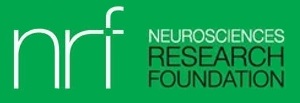Cognitive Neurology and Dementia
On this page:
The cognitive neurology and dementia service provides a consultant-led multi-disciplinary approach to the diagnosis, assessment and treatment of all cognitive disorders (conditions that affect how somebody thinks and behaves).
There are lots of types of cognitive disorder but the most common are those that are due to dementia. The term dementia describes a group of diseases that cause progressive decline in cognition and everyday functioning.
Below is a list of cognitive functions that can change over a number of months when someone experiences dementia:
- Memory
- Language
- Visio-spatial skills
- Thinking and problem solving abilities
- Numerical skills
- Visual perception
- Changes in personality.
The most common cause of dementia is Alzheimer’s disease but there are many other causes including frontotemporal dementia, dementia with Lewy bodies, vascular dementia and dementia due to excessive alcohol consumption. Most dementias are more common in older people, but there are some that can occur in people’s 40s, 50s and 60s, including Alzheimer’s disease and frontotemporal dementia. Dementia below the age of 40 is exceptionally rare.
Patients referred to the Cognitive Neurology service will have an initial one hour assessment with one of our consultant neurologists. This will involve taking a detailed history of the problem. It is particularly helpful to bring someone who knows you well to the appointment to provide a witness account of your difficulties. Often we are able to offer reassurance that there is no worrying cause for someone’s memory or other cognitive symptoms. In some cases further tests are needed, such as a brain scan, detailed neuropsychological assessment or a lumbar puncture. These will be arranged for a separate visit, and may be done on one day on the Neuroscience Day Unit.
Following these tests, a follow-up consultation with the same consultant will be arranged. If the tests help confirm a diagnosis of dementia then we will discuss treatment options and offer advice on lifestyle changes, support for you and your family, future planning and other aspects of living well with dementia. If needed, further follow-up appointments will be arranged with the same consultant or with our dementia specialist nurse. Younger people with dementia will be invited to join our early onset dementia support group. You can read more about the support group and other information about living well with young onset dementia on our dedicated website: www.youngdementiasupport.london
As the regional specialist centre for cognitive neuroscience and dementia, we work closely to co-ordinate care with other hospitals from across south west London, Surrey, Sussex and Hampshire, and with GPs, community nursing teams, memory clinics, mental health services, dementia advisers and other voluntary sector support and social services.
St George’s University Hospitals NHS Foundation Trust and St George’s University of London are committed to leading the way in research into dementia and other cognitive disorders. Our ultimate aim is to develop treatments that could slow or even stop neurodegeneration, improving the quality of life for vast numbers of patients.
We aim to offer all of our patients the opportunity to take part in clinical trials and other types of research. One of our doctors or nurses will discuss which research projects could be appropriate for you.
Treatments
We provide diagnosis, assessment and treatment of all cognitive disorders, including:
- Mild cognitive impairment
- Alzheimer’s disease
- Posterior cortical atrophy
- Primary progressive aphasia
- Progressive non-fluent aphasia
- Semantic dementia
- Frontotemporal dementia
- Vascular dementia
- Dementia with Lewy bodies/Parkinson’s disease dementia
- Progressive supranuclear palsy
- Corticobasal degeneration
- Epilepsy and dementia
- Limbic encephalitis
- HIV dementia
- Transient global amnesia
- Transient epileptic amnesia
Key staff
Our services are provided by a consultant-led multi-disciplinary team including neurologists, specialist nurses, neuropsychologists and neuroradiologists.
Referrals
Please visit our Neurosciences Booking and Referral Centre for instructions on how to refer.


